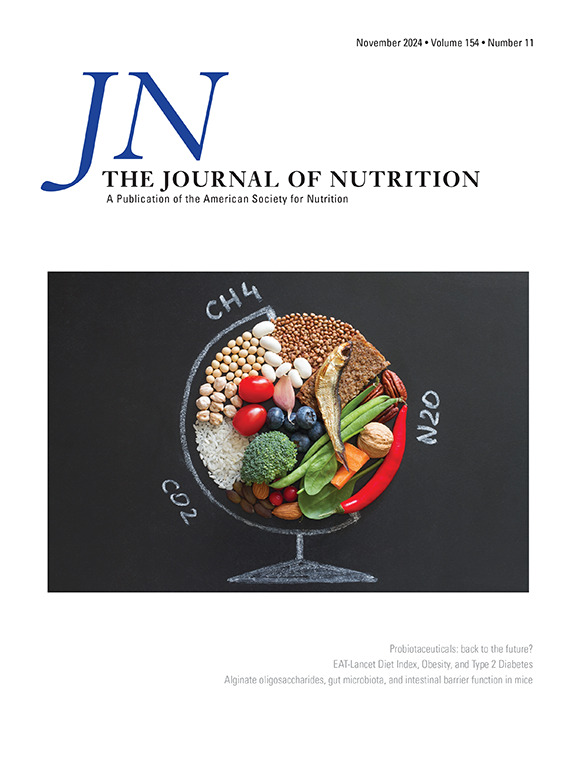Comparison of an Adapted Food Security Module for College Students with the United States Department of Agriculture Adult Food Security Module
IF 3.7
3区 医学
Q2 NUTRITION & DIETETICS
引用次数: 0
Abstract
Background
The United States Department of Agriculture’s 10-item adult food security survey module (AFSSM) has not been validated in college students, raising concern about measuring food insecurity (FI) in this population.
Objectives
The objective of this study was to adapt and validate the 10-item AFSSM for use among college students.
Methods
Researchers conducted a mixed methods study including individual- (n = 20) and group- (n = 13) cognitive interviews among students at 3 United States universities. Researchers independently evaluated interview data and met to discuss whether AFSSM adaptations were warranted. A Rasch model was used to evaluate the psychometric validity of the official compared with adapted AFSSM among a sample (n = 2897) of students at 4 United States universities.
Results
In individual cognitive interviews, students were confused about the terms “household” and “balanced meal” and in differentiating between frugality and FI. Nine items were revised, and 1 item was removed. In group cognitive interviews, students discussed nonfinancial factors impacting FI and suggested wording changes. Seven items were changed. In the survey study, 35.4% were food insecure using the official AFSSM compared with 28.4% using the adapted AFSSM (P < 0.05).
Conclusions
The adapted AFSSM captured greater severity of FI for several questions and changed the relative ordering of questions. Regardless of which wording was used, the questions on food not lasting and balanced meals captured different FI prevalence than the general population. The official and adapted AFSSM provides psychometrically valid measures of FI among college students, but adjustments may be required before making direct comparisons with FI measures for the general population.
大学生食品安全模块与美国农业部成人食品安全模块的比较。
美国农业部(USDA)的10项成人食品安全调查模块(AFSSM)尚未在大学生中得到验证,这引起了人们对衡量这一人群食品不安全的关注。本研究的目的是调整和验证10项AFSSM在大学生中的应用。研究人员对美国三所大学的学生进行了一项混合方法的研究,包括个人(n=20)和群体(n=13)认知访谈。研究人员独立评估了访谈数据,并讨论了AFSSM的适应性是否合理。采用Rasch模型在美国四所大学的样本(n=2,897)中评估官方与改编的AFSSM的心理测量效度。在个人认知访谈中,学生们对“家庭”和“均衡膳食”这两个词感到困惑,在区分节俭和粮食不安全之间感到困惑。修改了9项,删除了1项。在小组认知访谈中,学生们讨论了影响粮食不安全的非财务因素,并建议修改措辞。更改了7个项目。在调查研究中,35.4%的人使用官方AFSSM,而28.4%的人使用调整后的AFSSM
本文章由计算机程序翻译,如有差异,请以英文原文为准。
求助全文
约1分钟内获得全文
求助全文
来源期刊

Journal of Nutrition
医学-营养学
CiteScore
7.60
自引率
4.80%
发文量
260
审稿时长
39 days
期刊介绍:
The Journal of Nutrition (JN/J Nutr) publishes peer-reviewed original research papers covering all aspects of experimental nutrition in humans and other animal species; special articles such as reviews and biographies of prominent nutrition scientists; and issues, opinions, and commentaries on controversial issues in nutrition. Supplements are frequently published to provide extended discussion of topics of special interest.
 求助内容:
求助内容: 应助结果提醒方式:
应助结果提醒方式:


